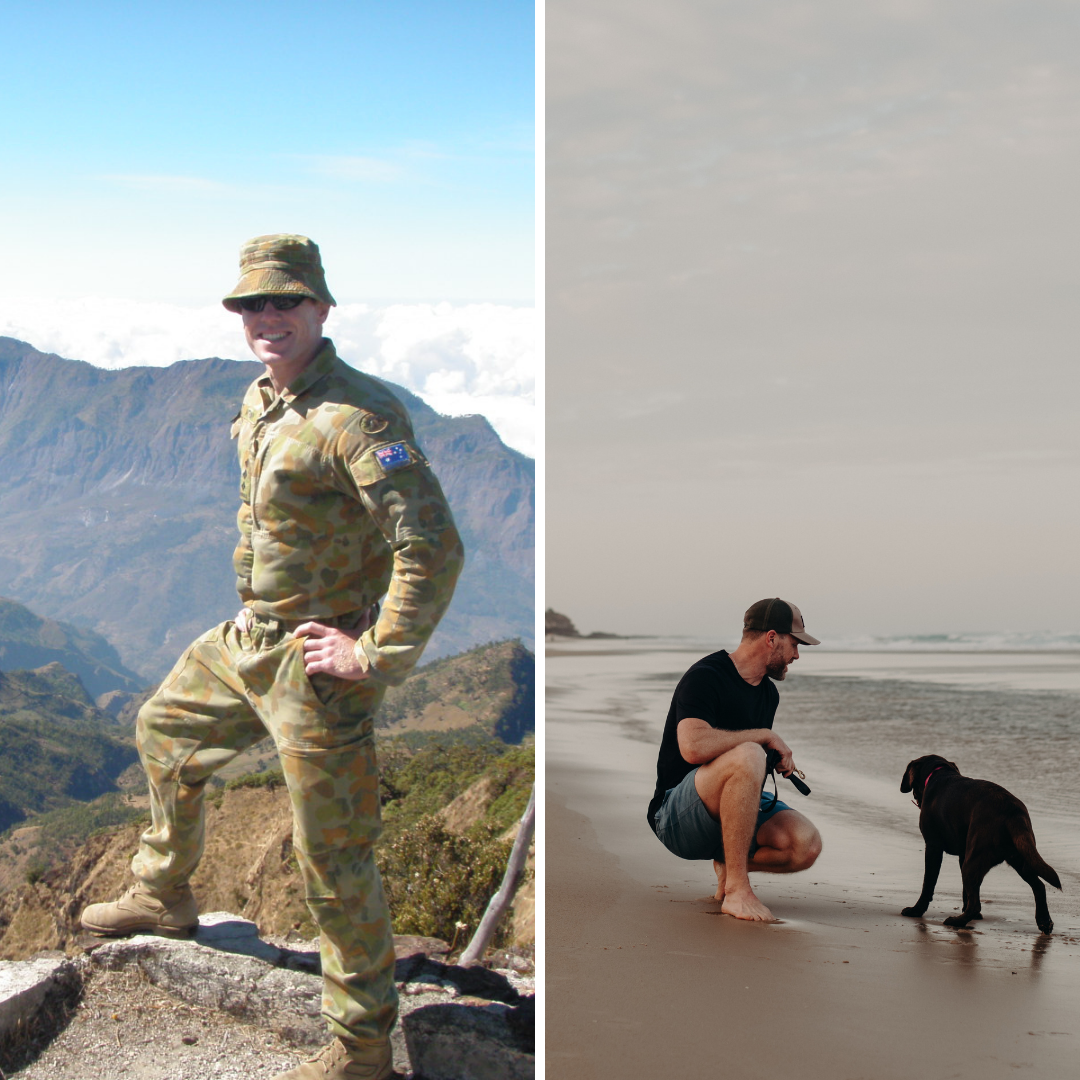Tell us a little bit about yourself...
I’m in my early 40’s, married, living on the Sunshine Coast, and have a chocolate Lab called Lani. We’re trying to start a family. Primary passions are surfing, travelling, spending time with family and mates, getting outdoors, and learning, both personally and professionally. I’m still figuring out what I want to do when I “grow up”, but always looking for opportunities to be challenged and enjoy this fortunate life I have.
And, your military background...
Enlisted 2007, deployed to Timor twice in 2009, once in 2011, deployed to Middle East twice in 2010, once in 2013. Also involved in support following the Vic Bushfires in 2009. Career highlight was providing support to civilian community following the 2009 Black Saturday bushfires in Victoria. Seeing the devastation and the randomness of what the fires did was incredibly confronting, but being able to get out into the community and provide initial support for those that really needed it was second to none.
What are you up to these days?
I have worked as a lifeguard around SE QLD and a structural draftsman, spent time living, travelling, and working overseas, before enlisting and serving as an army psychologist in various parts of Australia and overseas. I’ve also had the great opportunity to research and work in AFL with the West Coast Eagles. I am currently working primarily with a mob building and sustaining workplace mental health, and my other ‘job’ is building a men’s virtual mental health service with two awesome blokes, both of which I met during my army service.
How was your transition from the military to civilian life?
Hard, still going, even though I stripped back my army involvement in 2013. The world appears in a very different light when having been exposed to operations overseas.
We know that transition from the military to civilian life can be challenging on the mental health of so many Veterans. We know that transition in many areas of life can be challenging - primary school to high school, high school to university or the workforce, becoming a parent, loss of a close friend or family member etc. What is ONE tip you can provide to those reading this that helped with your transition from the military to civilian life from a mental health perspective?
Rely on the supports that are close to you – your family and close mates. They may not have had the experiences that you have, and that’s ok, but you talking with those close to you will help you process your experiences and build valuable supports that will be there long after you discharge, noting the sooner you start doing this, the easier it will become. And if you need more professional support, reach out – it ain’t weak to speak, and you will be better for it.
What do you wish civilians were more aware of about Veterans and military personnel?
We are not all broken as a result of our service, but we now experience the world differently.
What do you like most about LIVIN?
Working hard to shift the perspective on ways to improve the mental health of ourselves and others, to decrease the suicide rate




